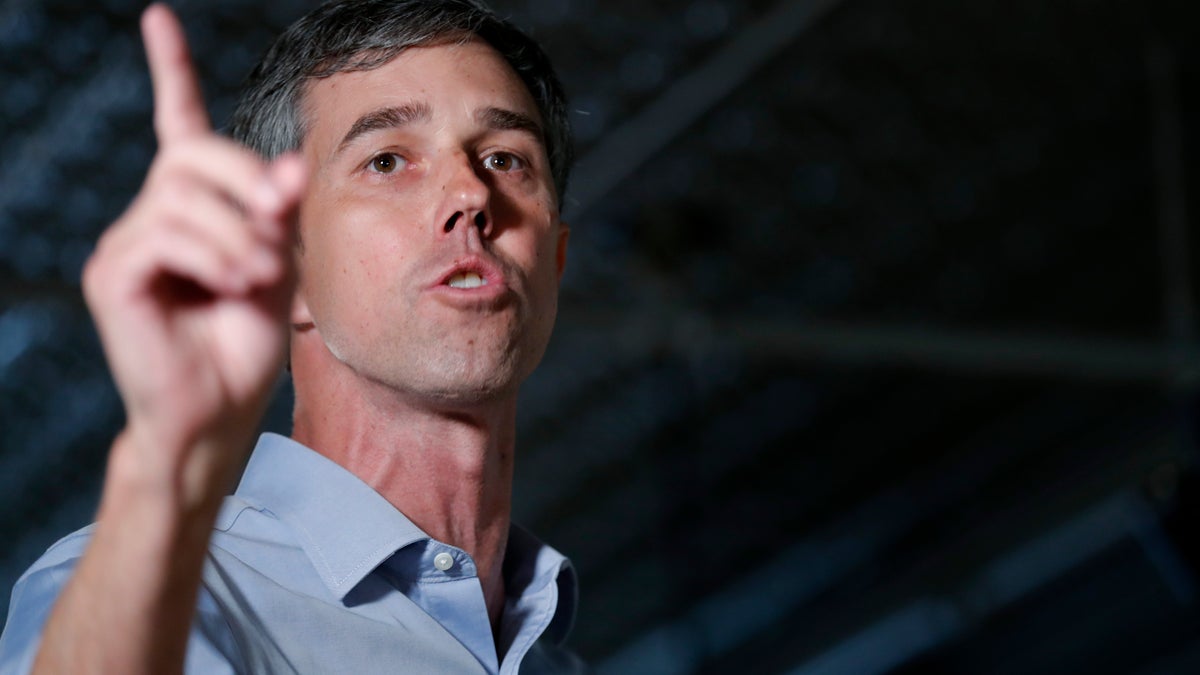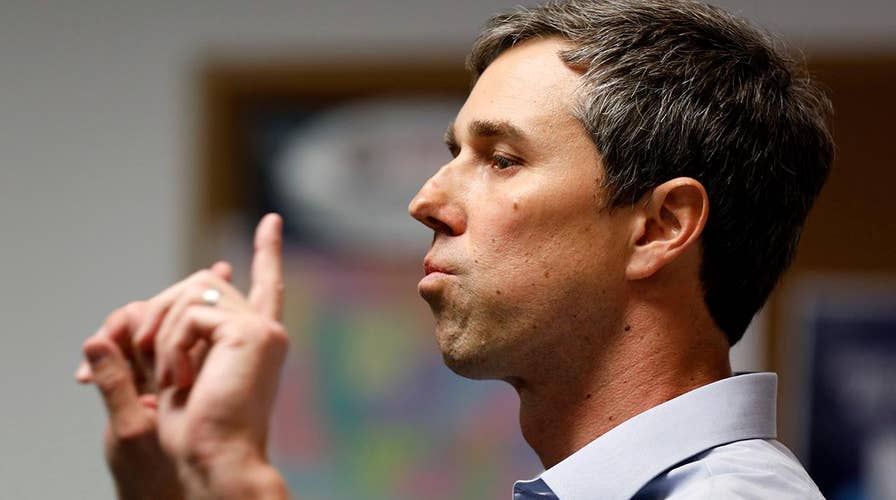How does Beto O'Rourke change the 2020 presidential race?
Reaction and analysis from attorney Peter Lumaj and former Ohio state senator Capri Cafaro.
Beto O’Rourke is open to making drastic changes to fundamentally reshape the Supreme Court -- essentially court-packing, with a twist.
O’Rourke, who officially entered the 2020 race on Thursday, spoke to supporters at a coffee shop in Iowa when he floated the idea of having as many as 15 judges on the bench.
“What if there were five justices selected by Democrats, five justices selected by Republicans, and those ten then picked five more justices independent of those who chose the first ten?” he said.
“I think that’s an idea we should explore.”
TRUMP MOCKS BETO O'ROURKE AFTER 2020 ENTRY: 'IS HE CRAZY OR IS THAT JUST THE WAY HE ACTS?'

Former Texas congressman Beto O'Rourke speaks to local residents during a meet and greet at the Beancounter Coffeehouse & Drinkery, Thursday, March 14, 2019, in Burlington, Iowa. O'Rourke announced Thursday that he'll seek the 2020 Democratic presidential nomination. (AP Photo/Charlie Neibergall)
He then added: “There’s another idea of adding term limits on those justices so that there’s a more regular rotation through there. We’re a country of 320 million people. There’s got to be the talent and the wisdom and the perspective and that court should be able to reflect the diversity that we are composed of.”
O’Rourke isn’t the only big-name Democrat to signal a willingness to embrace expanding the Supreme Court, with ex-attorney general Eric Holder, Sen. Kirsten Gillibrand, D-N.Y., and Pete Buttigieg all talking about potential changes.
Gillibrand was asked on the PodSaveAmerica podcast whether the confirmation of Supreme Court Justice Brett Kavanaugh last year – despite a contentious hearing that included allegations of sexual misconduct – would encourage her to reform the nation’s highest court if elected. Gillibrand was asked if she’d be open to creating term limits for justices or adding more to the bench.
“They’re interesting ideas that I would need to think more about,” Gillibrand said. “But I do think what President Trump has done with the judiciary is, is shocking and is so destructive.”
I think that’s an idea we should explore
On the same podcast, Buttigieg said of court-packing: “We should in the course of this 2020 campaign have a debate over this central objective that is to prevent the Supreme Court from continuing on this trajectory to become basically ruined by being a nakedly political institution.
“So to me, this idea of adding justices is one way to do it. It may actually not be the most compelling way to do it. I mean I’m interested in a policy where you would have five appointees of Republicans and five of Democrats on a 15-member court. And where you get the other five from is a consensus of the other 10 which has to be unanimous.”
Holder said the refusal of Senate Republicans to vote on Judge Merrick Garland in 2016 was the motivation for him considering changes to the court.
“Given the Merrick Garland situation, the question of legitimacy is one that I think we should talk about,” Holder said, according to the Washington Post.
WHO'S STILL ON THE FENCE FOR 2020? AFTER BETO, THESE DEMS COULD JUMP IN NEXT
“We should be talking even about expanding the number of people who serve on the Supreme Court, if there is a Democratic president and a Congress that would do that.”
The idea of packing the Supreme Court isn’t without precedent, with President Franklin D. Roosevelt most famously trying to do it in 1937.
CLICK HERE TO GET THE FOX NEWS APP
Roosevelt’s Judicial Procedures Reform Bill of 1937, widely known as the “court-packing plan,” would have given the president power to appoint a maximum of six extra judges to the court for every current member who had served 10 years or more and was over the age of 70 years and six months.




